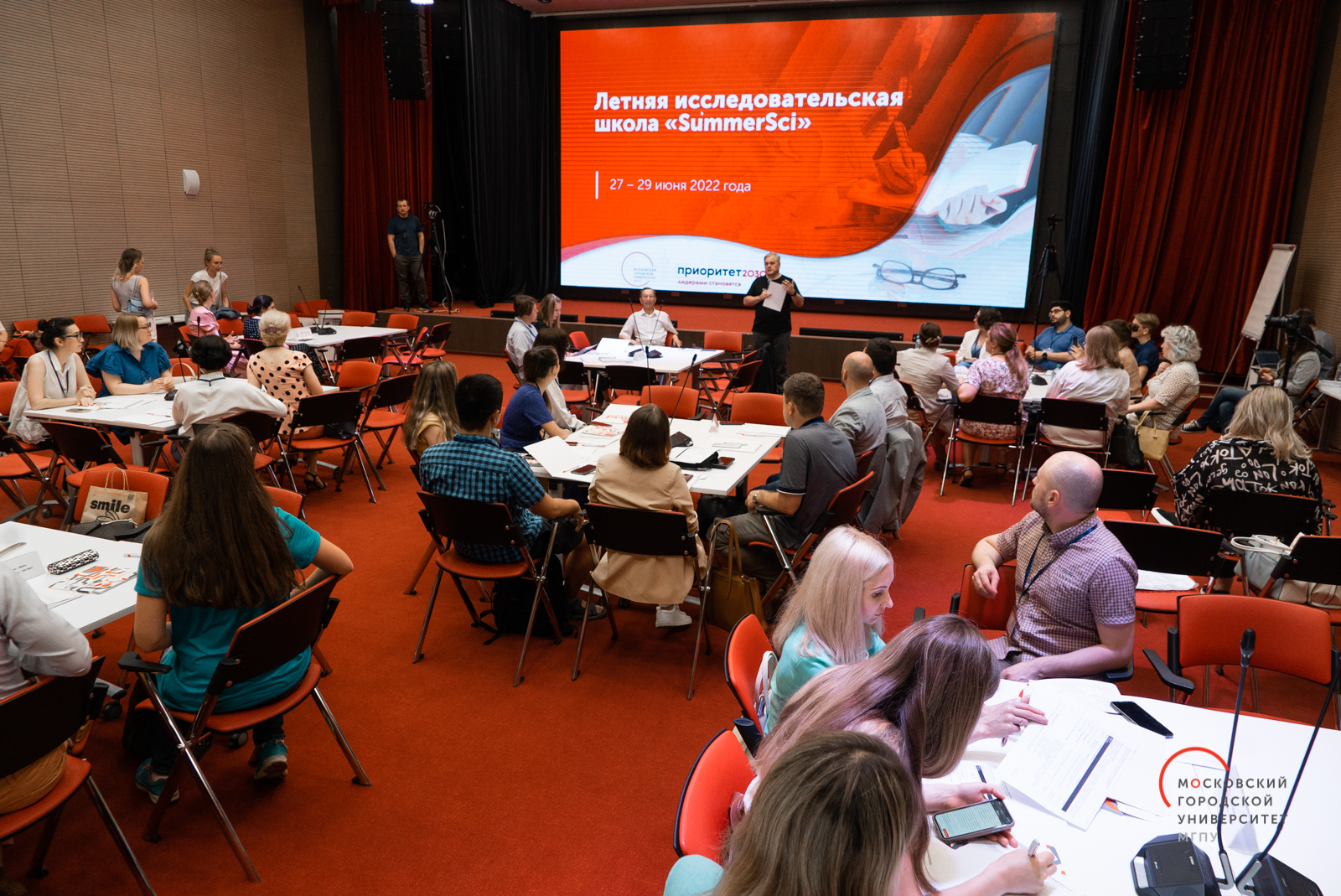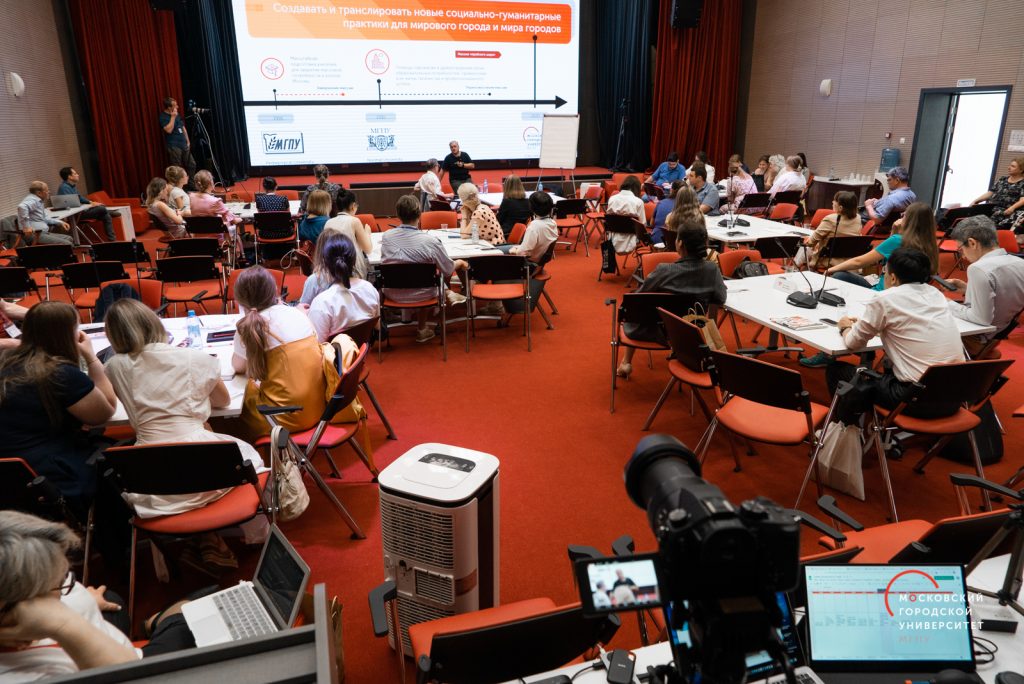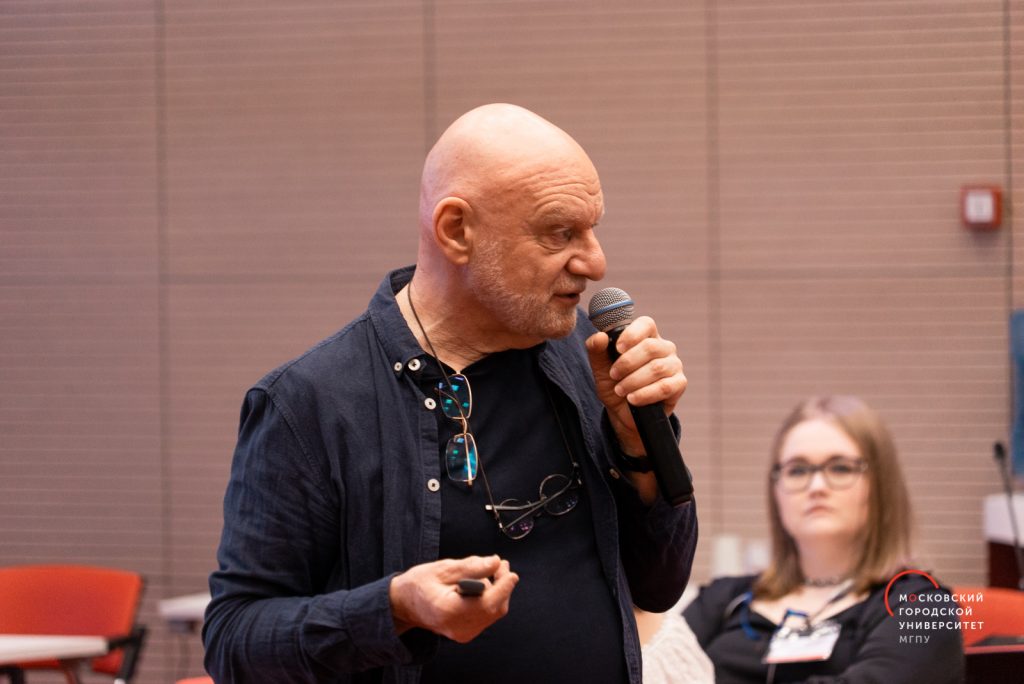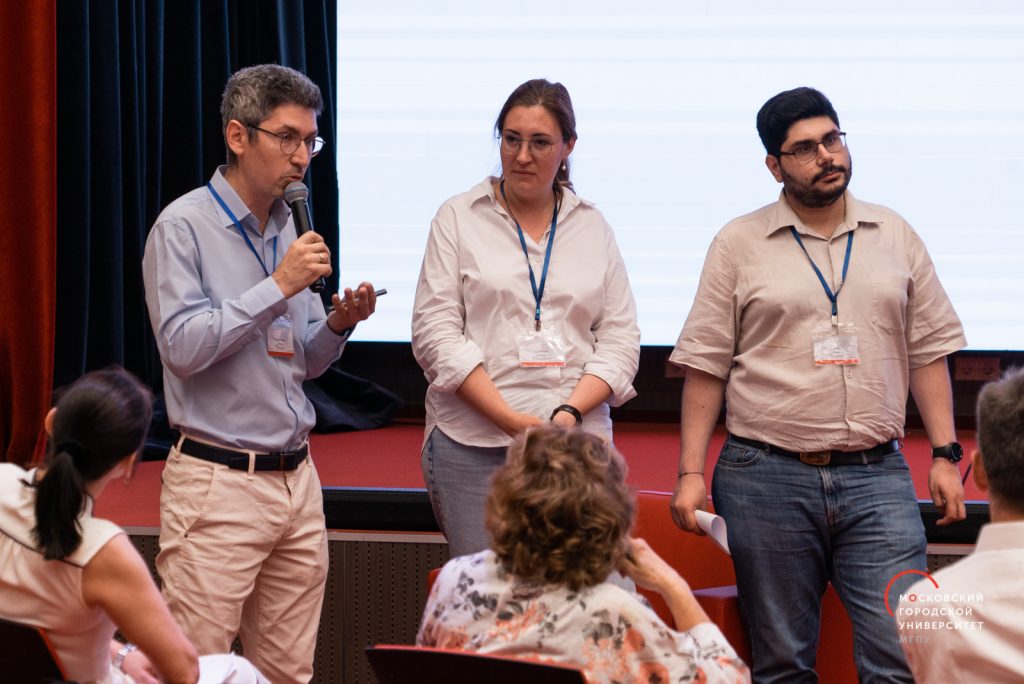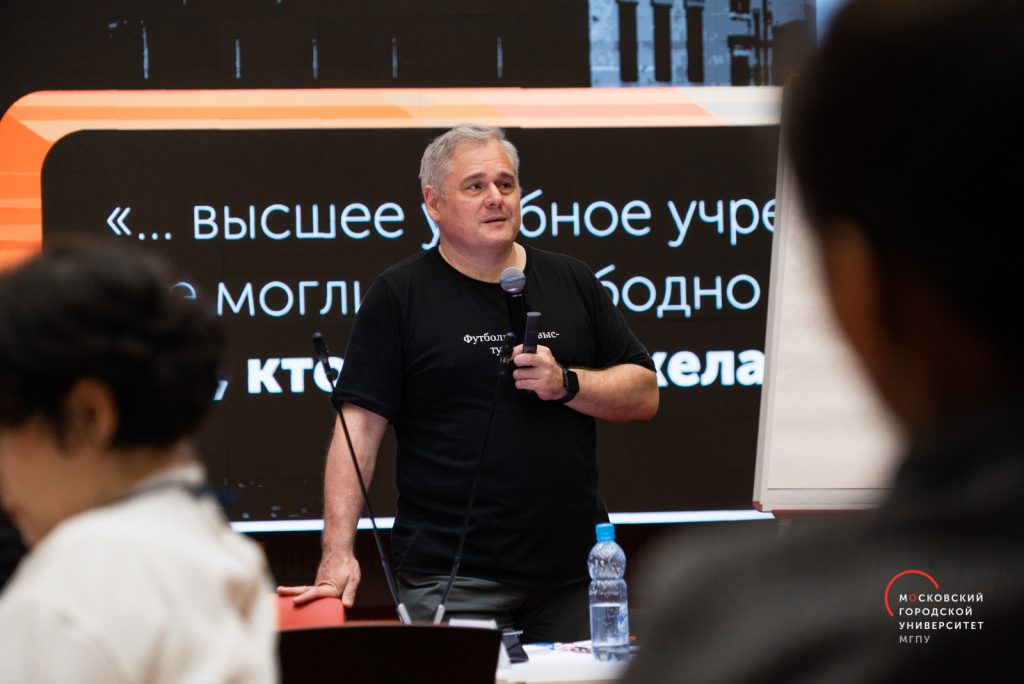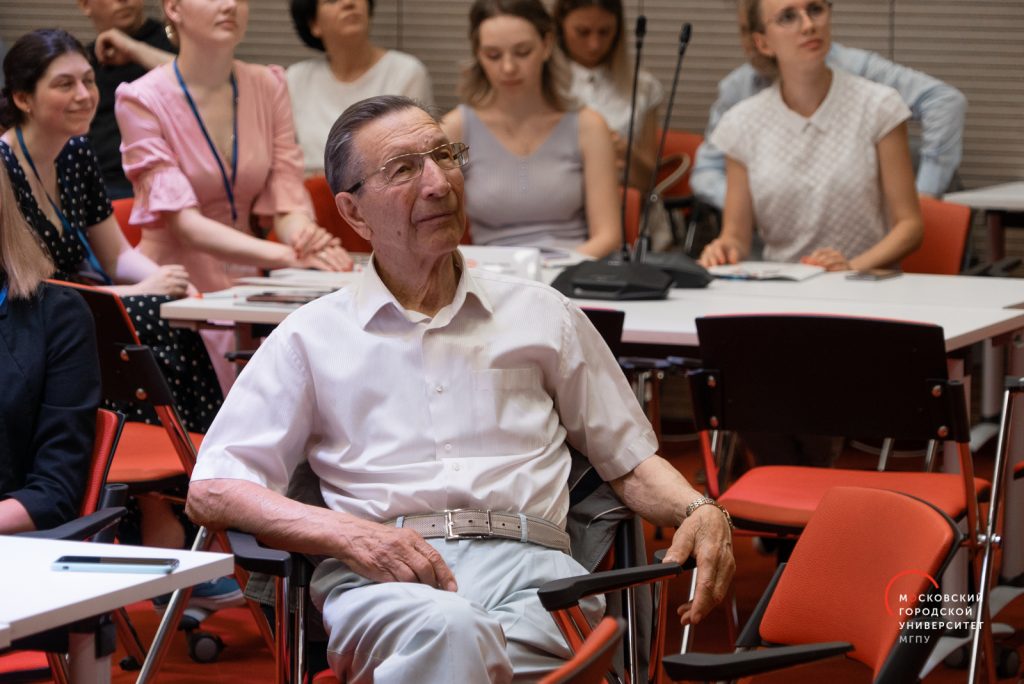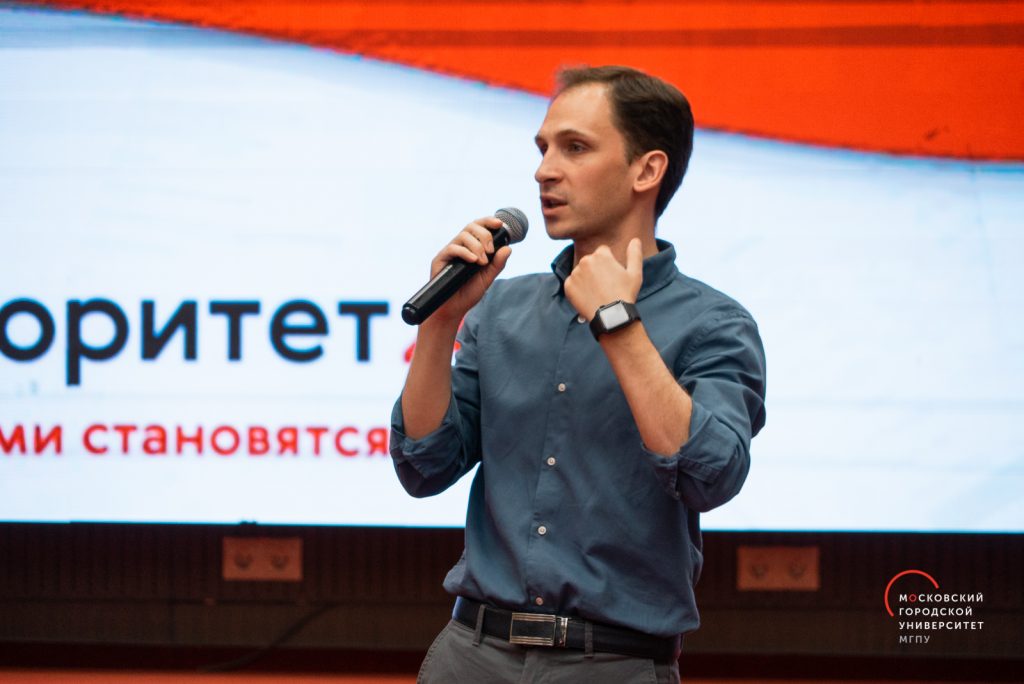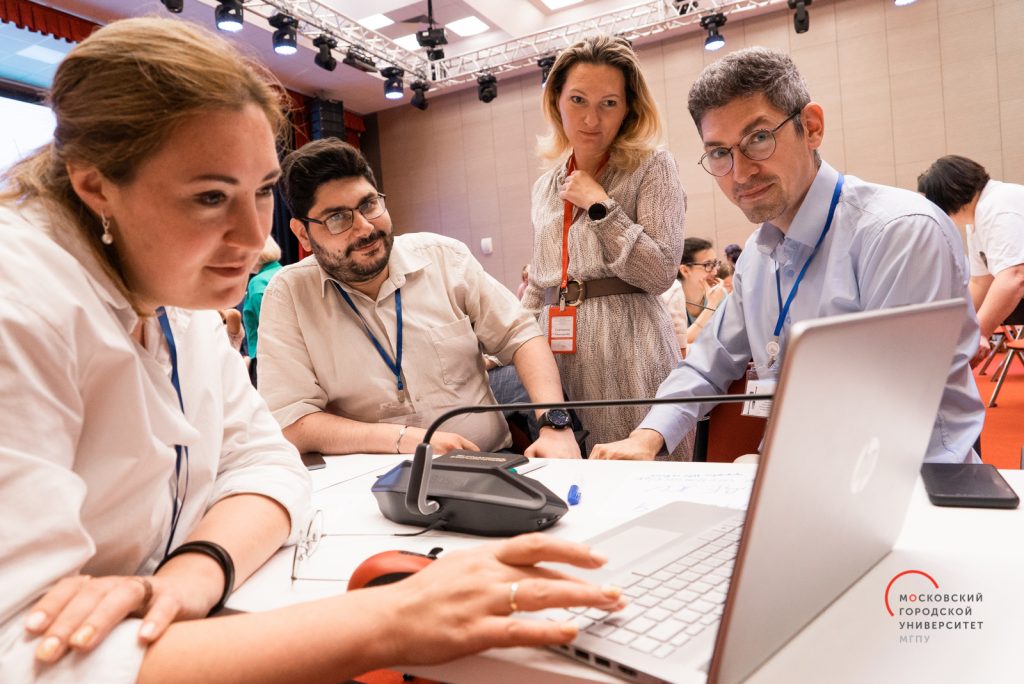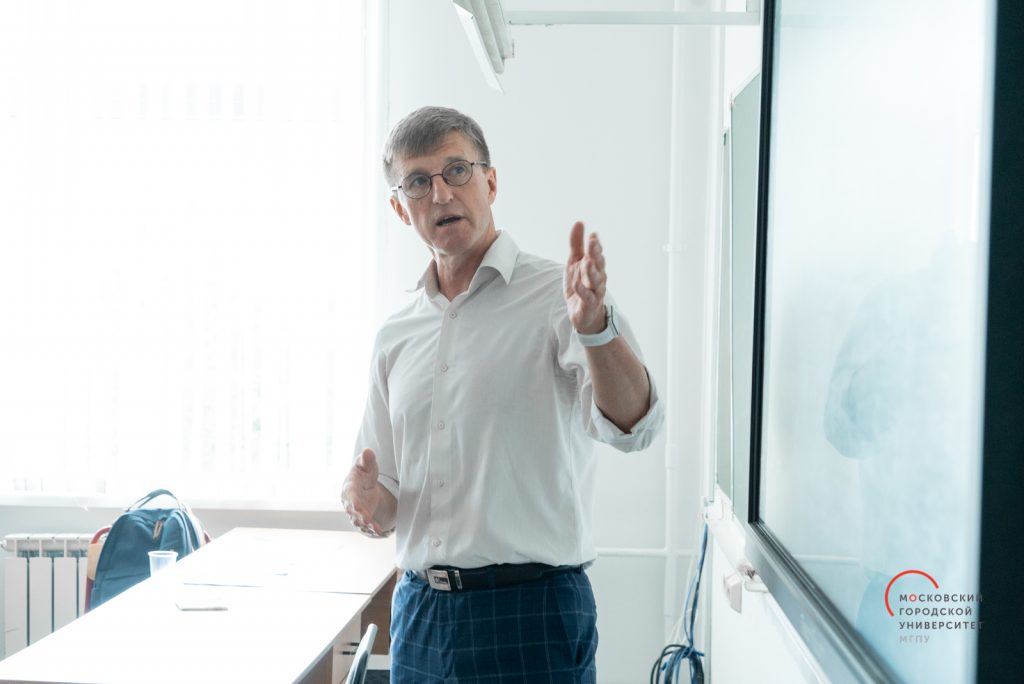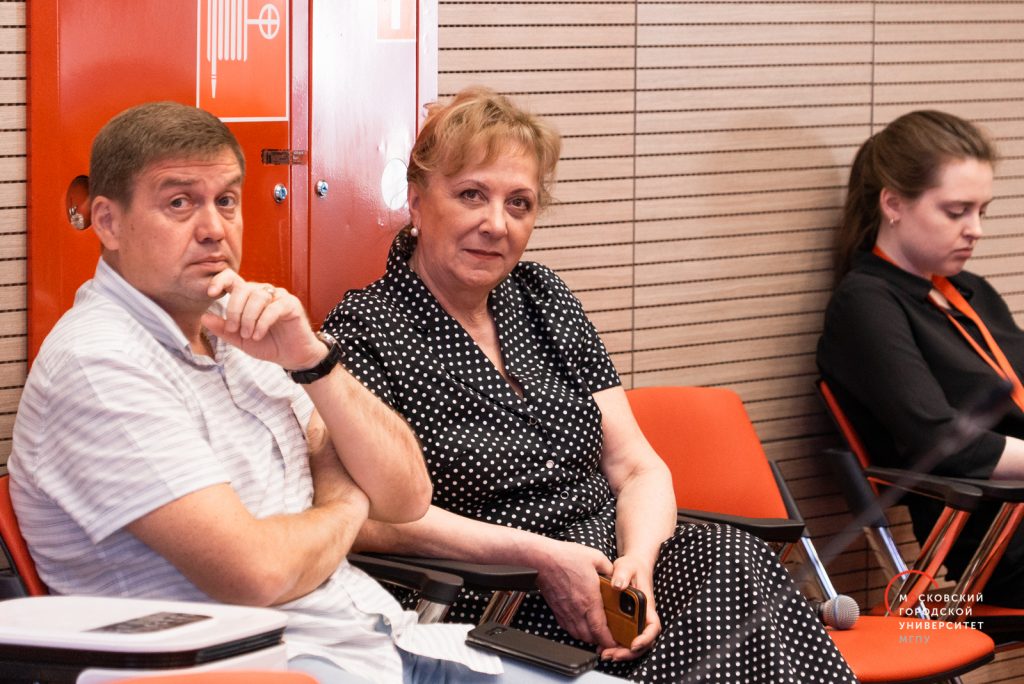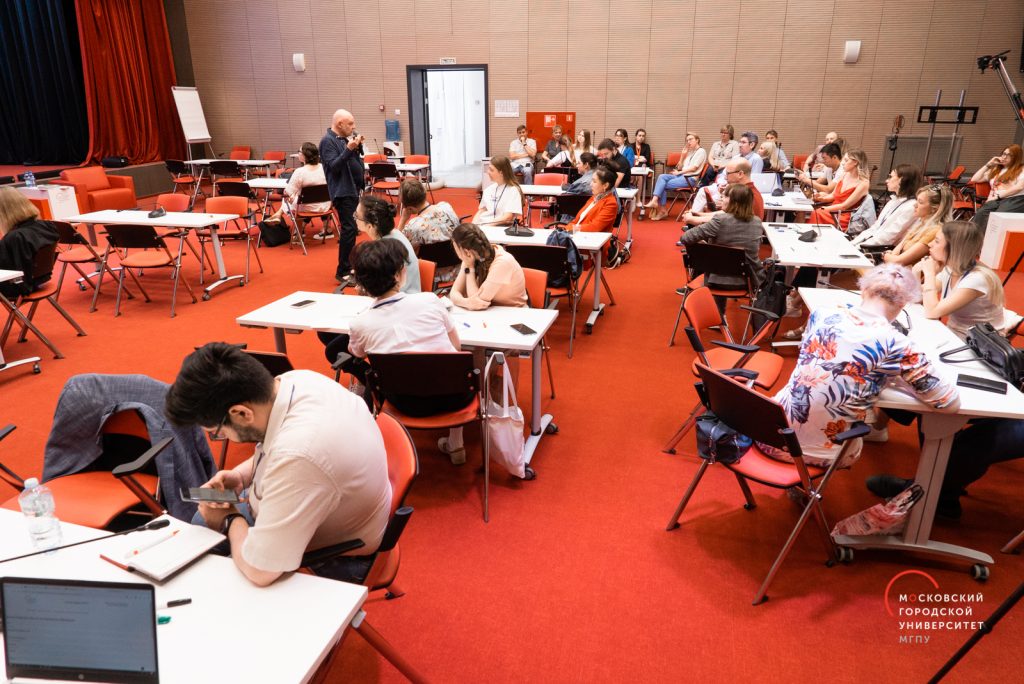On June 27–29, Moscow City University hosted the SummerSci Summer Research School. The school welcomed 50+ emerging researchers from MCU and other Russian universities.
The school featured various activities, including interactive meetings with the leadership and experts of the MCU’s institutes. The participants of the school have been introduced to the tracks of the MCU’s activities, including research on the socio-cultural environment of the city, cross-cultural communication, new teaching practices, and equal opportunities.
At the OpenKimono session, the participant presented their research and received feedback from the experts. The teams of emerging researchers developed frontier maps and described research development. The network party allowed the participants to get acquainted with each other, establish contacts, and elaborate on research topics in an informal setting.
The participants of the school had an opportunity to cooperate with the leading experts in the field of education and urban studies:
- Grigory Revzin, a Russian historian, art and architecture critic, journalist, columnist, special reporter of Kommersant, and Strelka KB partner;
- Viktor Bolotov, Research Head at the Centre for Psychometrics and Measurement in Education of the HSE University’s Institute of Education;
- Mikhail Klarin, a co-founder and first chairperson of the Russian-speaking Coaches Association, Correspondent Member of the Russian Academy of Education, Chief Research Fellow at the Laboratory of Activity-Based Education Design of the MCU’s Research Institute of Urban Studies and Global Education.
The key event of the school was the research project accelerator where each participant could analyze their research topic from different angles and draw up its development plan. The attendees formulated the tracks of updating their studies and applied projects based on them. The MCU’s development tracks have been discussed during the activities, including the socio-cultural environment of the city, cross-cultural communication, new media, digital didactics, equal opportunities in the city, ecology, and psychology of human development.

